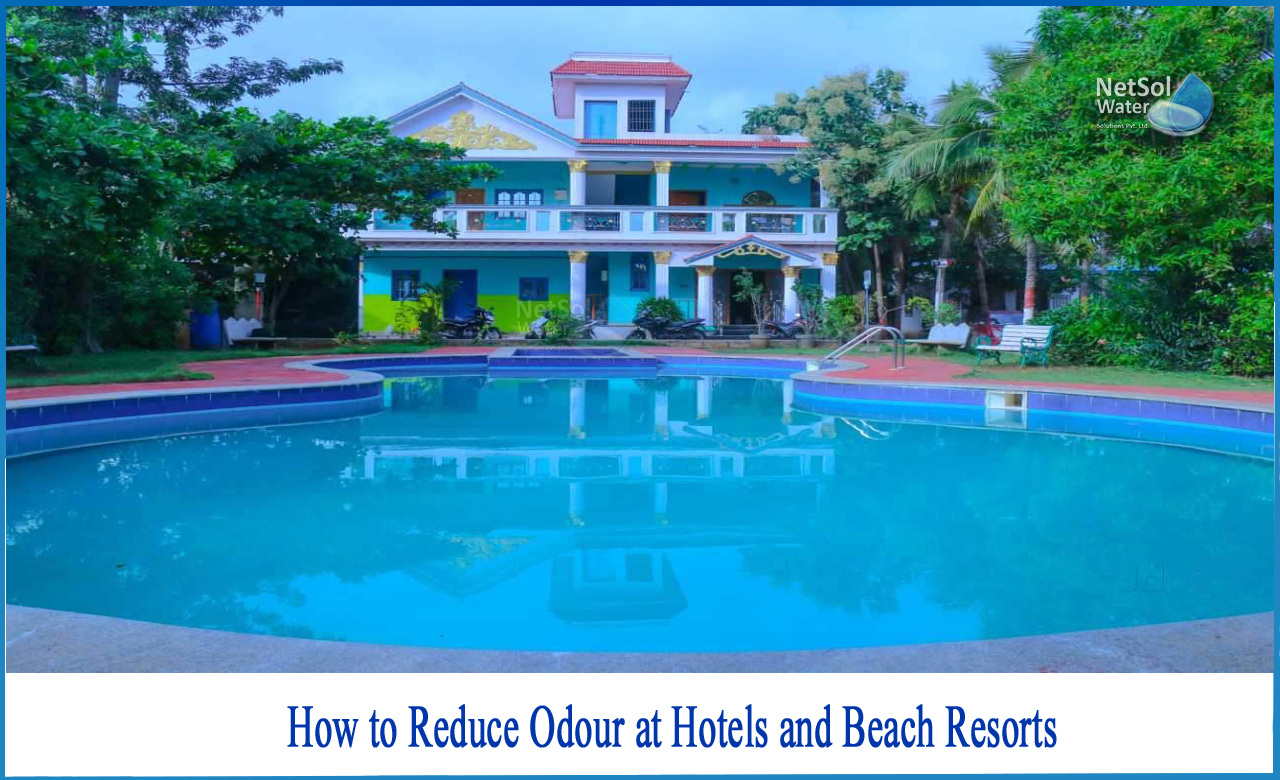How to reduce Odour at Hotels and Beach resorts?
The term hospitality refers to the warm reception of visitors, and hotels thrive on the level of hospitality they provide. With travel and tourism flourishing even during the pandemic, the chances of hotel reputations being harmed by the same quality of accommodation provided to international guests as those provided to domestic guests are the same.
While many people believe that on-site amenities such as food and beverage, meeting and conference services and facilities, fitness center, and business center will elevate the status of hotels, all of this will gain notoriety, which can further damage a hotel's reputation.
What causes a foul odour in a hotel?
The sewage treatment plants, which are mostly located in basements, are a major source of odour. The accumulation of wastewater and sludge over time can result in severe odours and health problems. The most common mistake made to avoid odours is to restrict airflow, which results in the accumulation of undesirable and flammable gases such as hydrogen sulphide (H2S) and methane (CH4).
A common solution is to ventilate the rooftop with an exhaust fan while ensuring fresh air supply in the basement with a dedicated fresh air supply fan. In contrast to the power consumed by an air-conditioning unit in a guest room, these fans consume a significant amount of power and significantly add to the overall power consumption cost of the facility without adding any profits to the total revenue.
With space management as a key player in design, hotel rooftops are no longer desolate, but rather function as entertainment hubs. Swimming pools, lush gardens, comfortable seating, restaurants, and beverage parlors all found their way to the top of the building, where the sewage treatment plant's air is ventilated.
This can be a huge issue when it comes to complaints from guests who use the rooftop amenities. This pungent air enters the guest room via fresh air intake suction units kept on the roof, and it is masked by perfumes that are only effective for a few hours. The irony is that most guests nowadays prefer a neutral odour or perfume-free room because they do not want to inhale toxic VOCs released by chemical perfumes.
What is the solution to these odour issues?
It is always preferable to address the underlying cause of the odour problem.
Odorous gases are released from two areas of the STP: the inlet, which houses the screening and collection tanks, and the sludge treatment facility.
Typically, these areas are in enclosed spaces to limit people's access. The odour-causing gases can be extracted from these areas and then passed through an odour control unit designed specifically for sewage treatment plant odour removal. The air volume will be reduced by more than 10% compared to what was originally vented out through the rooftop using a fresh air intake and exhaust fan.
This attempt not only reduces odour but also significantly reduces electricity consumption when compared to the previous technique. These odorous gases can also cause significant corrosion, and removing them, improves the durability of the facility's electronic and electrical equipment.
Netsol Water is India's leading manufacturer of water and waste water treatment systems. Choose Netsol's top technologies for proper waste water as well as waste management in India.
Netsol Water is Greater Noida-based leading water & wastewater treatment plant manufacturer. We are industry's most demanding company based on client review and work quality. We are known as best commercial RO plant manufacturers, industrial RO plant manufacturer, sewage treatment plant manufacturer, Water Softener Plant Manufacturers and effluent treatment plant manufacturers. Apart from this 24x7 customer support is our USP. Call on +91-9650608473, or write us at enquiry@netsolwater.com for any support, inquiry or product-purchase related query.



